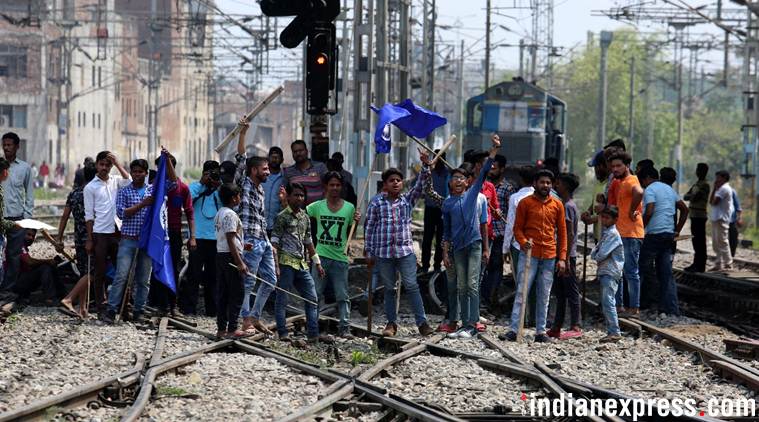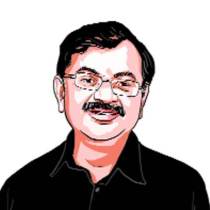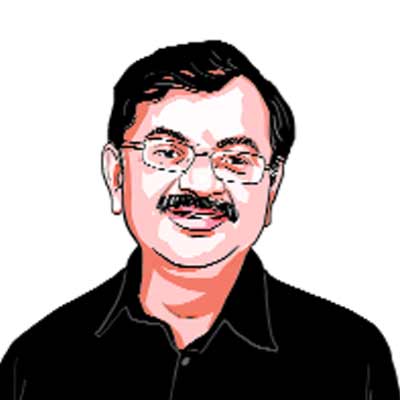A Nation’s Sin
Dalits must be addressed with genuine sensitivity, not hypocritical benevolence

Despite all the good work by social reformers — a large number of them being from the high castes — the fact is that SC Hindus are hardly accepted as equals even among the urban, high-caste, educated elite (Express Photos by Gurmeet Singh/Representational)
The 209-page Delhi High Court verdict on the gruesome incident at Mirchpur that saw a 70-year-old father and his differently-abled daughter burnt alive by upper-caste goons has gone almost unnoticed. The court convicted 20 people and said, the “Jat community deliberately attacked the people of Valmiki community”. This also reminds us that though we keep having conferences on Hindu solidarity, those efforts are meaningless without equal participation by the Scheduled Castes (SCs). Forgetting B R Ambedkar’s reasons for embracing Buddhism will prove lethal to our social fabric.
What was the crime of the 70-year-old father and his daughter?
Despite all the good work by social reformers — a large number of them being from the high castes — the fact is that SC Hindus are hardly accepted as equals even among the urban, high-caste, educated elite. In our daily routines, high-caste persons are the decision-makers, they grant blessings, ensure a safe passage to the heavens, religious bliss,, accumulation of punya, erect new temples and visit high-profile billionaire babas who show publicly how close they are to the political powers that be. The high castes decide tickets for legislative elections, promotions and punishments. In short, they weigh in on matters of life and death for most of us. SCs are “taken care of”.
They are not friends, they are not political leaders, they are always treated as “special” until they decide to fight a war for equality with strength. Sometimes, we think religious assertiveness is more important. That can be a genuine desire. But what about those for whom the question of survival as equal citizens is most important?
Take the intolerance experienced by a serving minister who vowed never to visit a temple because of horrific memories of his childhood of priests insulting him. Or the case of the newly-appointed governor of Uttarakhand, whose home is still at the far end of the village, away from the houses of the high castes. Her elevation by the Modi regime has certainly brought a sense of empowerment among the Jatavs, a brilliant, and brave social force.
For an average SC person, life begins with difficult choices. At the time of the birth of a child, the pandit consulted is different, at death the same dilemma arises and most have to take their dead to a different crematorium — they are often denied even passage through high-caste localities.
For an average SC person, life begins with difficult choices. At the time of the birth of a child, the pandit consulted is different, at death the same dilemma arises and most have to take their dead to a different crematorium — they are often denied even passage through high-caste localities.
When a young SC boy is killed for marrying into a high-caste family, none of the religious leaders or pioneers of Hindu society feel they must visit the house of the aggrieved family and try to create an atmosphere of amity. When we went to a Uttarakhand temple with Dalits and were stoned by a crowd of educated youth who wanted to kill us, I was stunned. I saw death before my eyes and asked the stone throwers — why do you want us dead? Later, the then Congress government withdrew my local security. I was mocked for standing with Dalits by everyone, except by the RSS adhikaris, who were the first to support me.
How can we hope to stop recurrences of the Mirchpur incident in such circumstances? SCs need equality, honour and a genuine sensitivity and not hypocritical benevolence and patronage. They need an equal share in decision-making. This will come from economic and political empowerment and a genuine change in the hearts of Hindu high castes. Currently, the high castes insult them even while trying to show they are elevating SCs. Only an SC person can feel and understand that pain. He has to keep silent and look the other way to survive. And those who speak for them are often ostracised, behind the scenes.
Fortunately, for the first time since Independence, we have a prime minister who has seen the pain and tribulations of what it means to be an outcaste. His Ambedkar bhakti comes from the heart, from his own early childhood experiences. He is bringing change to their lives. Our temples, preachers and sanyasis have to play a major role and explain to their disciples that it is not money and billion-dollar temples and world events, but a change of heart of Hindus for their SC brothers alone that will save Hindu dharma. If untouchability is not a sin, then nothing is. That is what Balasaheb Deoras, the third RSS sarsanghchalak had said. Add to it one more line — from a swayamsewak — if untouchability is not against the nation, nothing is.
The writer is a former BJP MP
For all the latest Opinion News, download Indian Express App
More From Tarun Vijay
- Nehru’s adversaryA JNU meet on Syama Prasad Mookerjee has powerful symbolic significance..
- Standing with the chiefGeneral Rawat’s concerned statement on education in Kashmir must be heard ..
- The honour of PadmavatiBox office considerations cannot be allowed to besmirch memories of a hero..








































No hay comentarios:
Publicar un comentario